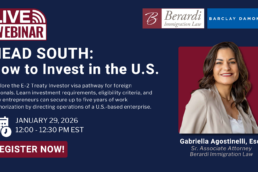Establishing specialized knowledge is the cornerstone of a successful L-1B petition. USCIS uses several factors to assess whether the beneficiary’s knowledge meets the required standard. As with all eligibility criteria, the petitioner must show that the beneficiary has the required specialized knowledge at the time of filing.
Special vs. Advanced Knowledge – What’s the Difference?
As mentioned in Part 1, USCIS recognizes two pathways to establish specialized knowledge: special knowledge and advanced knowledge. Both require that the knowledge is not commonly held in the industry, but they focus on different aspects of the beneficiary’s expertise.
-
Special Knowledge
Definition: Knowledge of the petitioning organization’s product, service, research, equipment, techniques, management, or other interests and its application in international markets that is distinct or uncommon in comparison to that generally found in the industry.
Key focus: The what — the company’s offerings and how they are deployed globally.
Examples of how a petitioner can establish special knowledge:
- Showing the beneficiary has in-depth knowledge of a proprietary software platform the company deploys for clients worldwide, including its unique architecture and configuration for specific international markets.
- Demonstrating that the beneficiary understands the technical specifications and global compliance requirements for a product line that the company manufactures and distributes internationally.
- Providing evidence that the beneficiary contributed to developing or customizing a product to meet foreign regulatory standards or client needs, knowledge that is critical to adapting the product for U.S. operations.
-
Advanced Knowledge
Definition: Knowledge of or expertise in the petitioning organization’s specific processes and procedures that is not commonly found in the relevant industry and is greatly developed or further along in progress, complexity, and understanding than that generally found within the employer.
Key focus: The how — the internal ways the company operates, produces, or delivers its products and services.
Examples of how a petitioner can establish advanced knowledge:
- Documenting the beneficiary’s expertise in the company’s internal quality assurance processes, which integrate proprietary testing protocols not used by competitors, essential for ensuring compliance with U.S. client contracts.
- Showing that the beneficiary has mastered the company’s complex supply chain management procedures, including its vendor qualification, cost control mechanisms, and logistics strategies, which are critical for maintaining operational efficiency in the U.S.
- Providing evidence that the beneficiary played a key role in developing or refining internal procedures for cross-border data handling or cybersecurity compliance — procedures that go beyond what’s typical in the industry.
USCIS Factors Considered
When reviewing L-1B petitions, USCIS officers may consider the following six factors:
- Whether the beneficiary has knowledge of foreign operating conditions valuable to U.S. operations.
- If the beneficiary’s assignments abroad have enhanced the company’s competitiveness, productivity, or image.
- Whether the beneficiary’s knowledge is typically gained only through prior experience with the company.
- If the beneficiary’s knowledge cannot easily be taught without significant cost or inconvenience.
- Whether the beneficiary’s knowledge relates to sophisticated, complex, or technical processes or products.
- If the beneficiary’s knowledge provides a competitive advantage to the employer in the marketplace.
USCIS assesses these factors holistically. The presence of one or more may support approval, but no single factor is dispositive.
Important Clarifications
- The beneficiary’s knowledge does not need to be proprietary or unique, but it can’t be commonly held or easily imparted.
- Specialized knowledge does not depend on rank or salary. Thus, the beneficiary need not be a manager or highly compensated.
- Comparisons within the organization can help, but the beneficiary’s knowledge need not be narrowly held; many employees may share specialized knowledge if it relates to complex or advanced company operations.
In the final part of this series, we’ll explore strategies for long-term planning, extensions, and transitioning to permanent residence.
Related Posts
January 29, 2026
Webinar “Head South: How to Invest in the U.S.”
Ready to have Berardi on your side?
Whether you’re a business looking to hire or a professional hoping to relocate, immigration law can be complicated. But you don’t have to do it alone. Put our experience to work for you.



